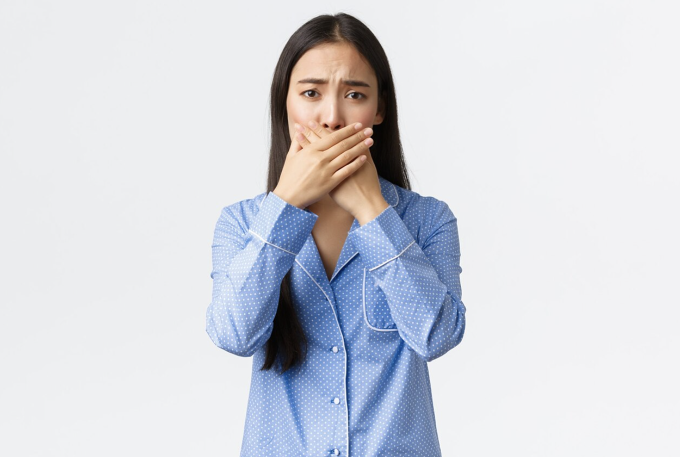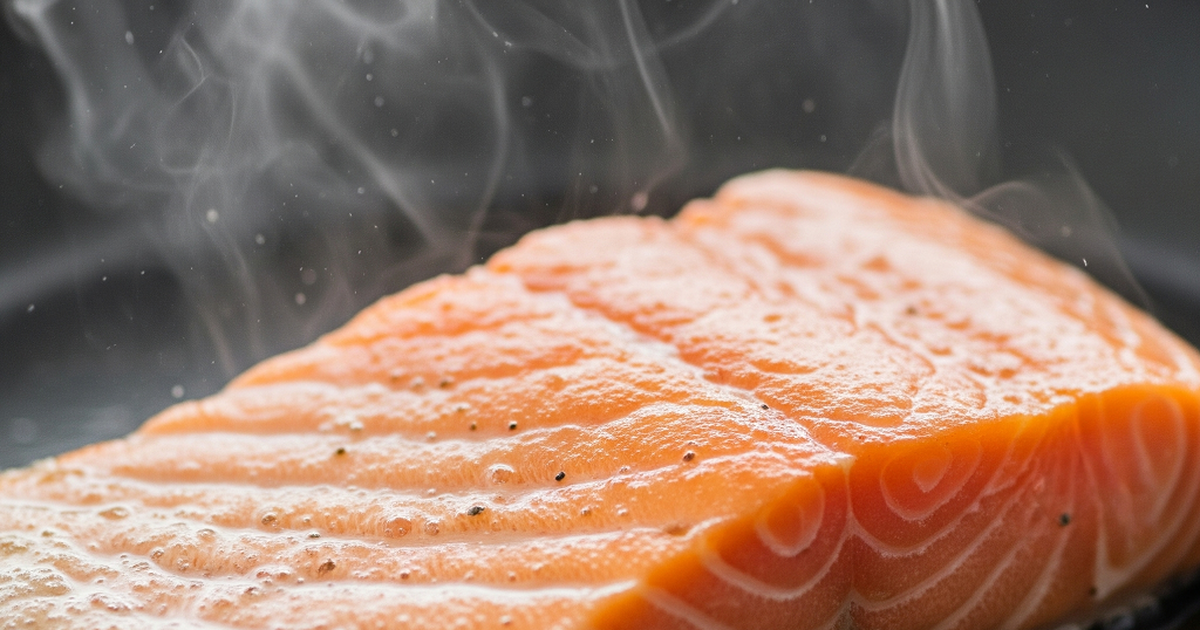What foods and diseases cause bad breath and how to have fresh breath are common questions of many people.
Bad breath does not affect aesthetics, but makes many people worry and lack confidence when communicating. Below are answers to questions about this condition.
How does food affect breath?
Garlic, onions, spicy foods, and sweets can leave a strong aftertaste. Coffee and alcohol can also dry out your mouth, leading to bad breath. After consuming these foods, you can chew mints, brush your teeth, rinse your mouth, or drink water.
Why do bad habits cause bad breath?
Poor oral hygiene causes gum irritation, inflammation, and creates conditions for odor-causing bacteria to grow. Brushing twice a day, rinsing, and flossing after every meal helps remove food debris and plaque.
Smoking causes bad breath by reducing saliva production, leading to dry mouth. The chemicals also stick to teeth, gums, and other soft tissues in the mouth, causing bad breath. The remedies include brushing, rinsing, chewing gum, and most importantly, quitting smoking.

Bad breath causes self-consciousness when communicating. Photo: Freepik
What diseases cause bad breath?
Brushing your teeth prevents bacteria from food stuck in your teeth and gums from growing. However, brushing your teeth does not always help to fix bad breath. This condition can be caused by many medical conditions.
Gastroesophageal reflux disease : Digestive disorders that cause stomach contents to reflux into the esophagus, causing bad breath. Patients often experience heartburn and a sour or bitter taste in the mouth.
Tooth decay : Bacteria that cause bad breath hide in cavities in teeth, making them difficult to remove.
Dry mouth : Salivary glands do not produce enough saliva, causing dry mouth. Bacteria then accumulate on the teeth, causing bad breath and increasing the risk of tooth decay and gum disease.
Liver disease: In some cases, people with liver disease notice a fruity breath odor. Other symptoms include yellowing of the skin and eyes, kidney failure, loss of appetite, easy bruising, spider veins on the skin, fatigue, and weight loss.
Hyperglycemia: A buildup of ketones in the blood can occur when blood sugar is high, leading to fruity breath odor. Very high blood sugar levels, dehydration, lack of alertness, and loss of consciousness are also symptoms of hyperglycemia.
How to reduce bad breath?
Brush your teeth : Brush your teeth twice a day after meals, with fluoride toothpaste, which has antibacterial properties to reduce bad breath.
Mouthwash : Maintain this habit regularly after brushing your teeth, clean deep in the mouth and keep your breath fresh. Mouthwash also reduces pain, supports the treatment of mouth ulcers.
Eat lots of fruit : Pineapple is rich in vitamin C which helps reduce the risk of gingivitis, eating cucumber stimulates saliva secretion to clean the mouth, eliminating bad breath. Drink enough water to produce more saliva to keep the mouth clean, preventing odor-causing bacteria.
Chewing gum : Stimulates saliva production which can reduce plaque that causes tooth decay and bad breath.
Le Nguyen (According to WebMD )
| Readers ask questions about respiratory diseases here for doctors to answer |
Source link




![[Photo] Prime Minister Pham Minh Chinh chairs the conference to review the 2024-2025 school year and deploy tasks for the 2025-2026 school year.](https://vstatic.vietnam.vn/vietnam/resource/IMAGE/2025/8/22/2ca5ed79ce6a46a1ac7706a42cefafae)
![[Photo] President Luong Cuong receives delegation of the Youth Committee of the Liberal Democratic Party of Japan](https://vstatic.vietnam.vn/vietnam/resource/IMAGE/2025/8/22/2632d7f5cf4f4a8e90ce5f5e1989194a)


































































































Comment (0)